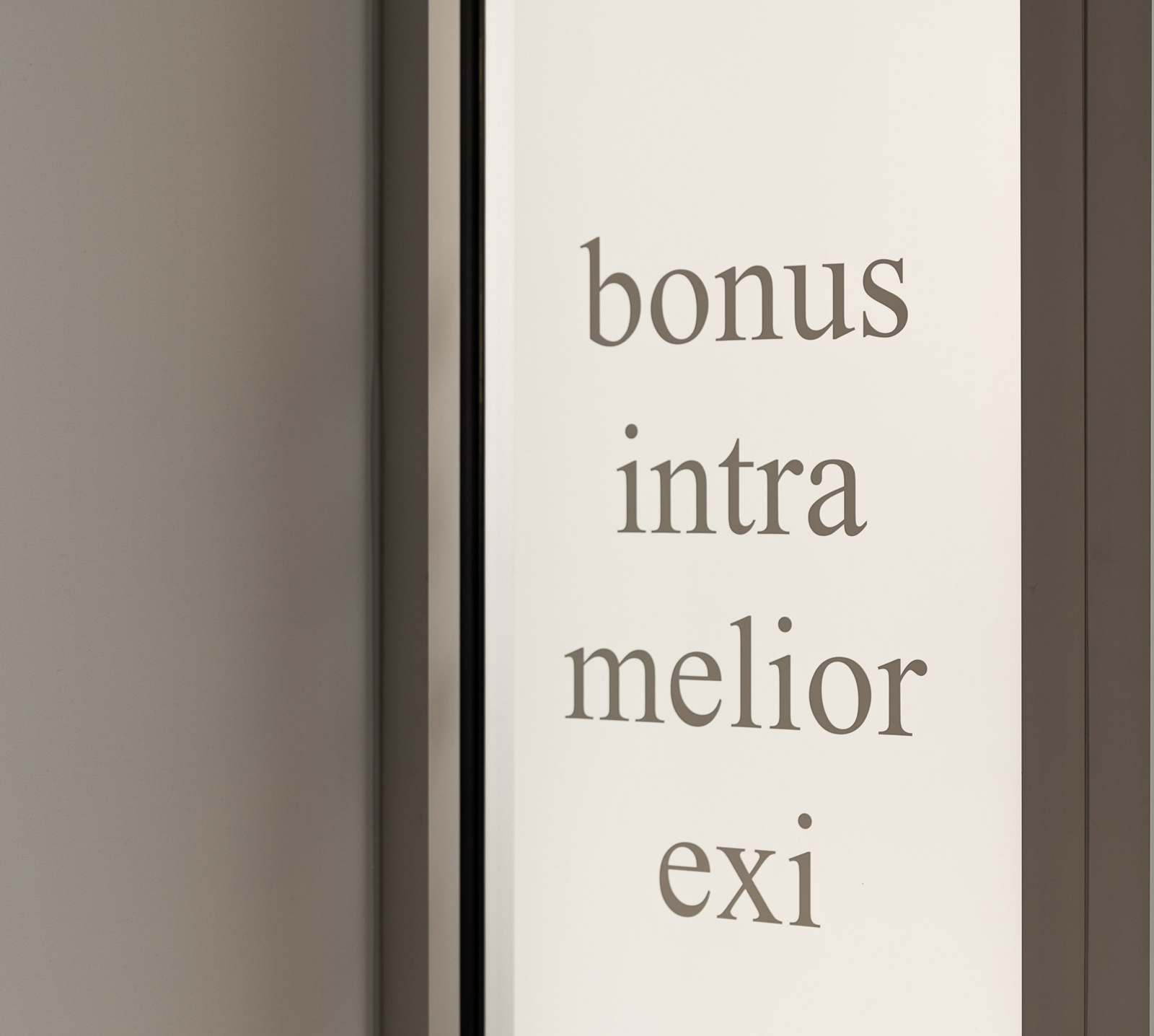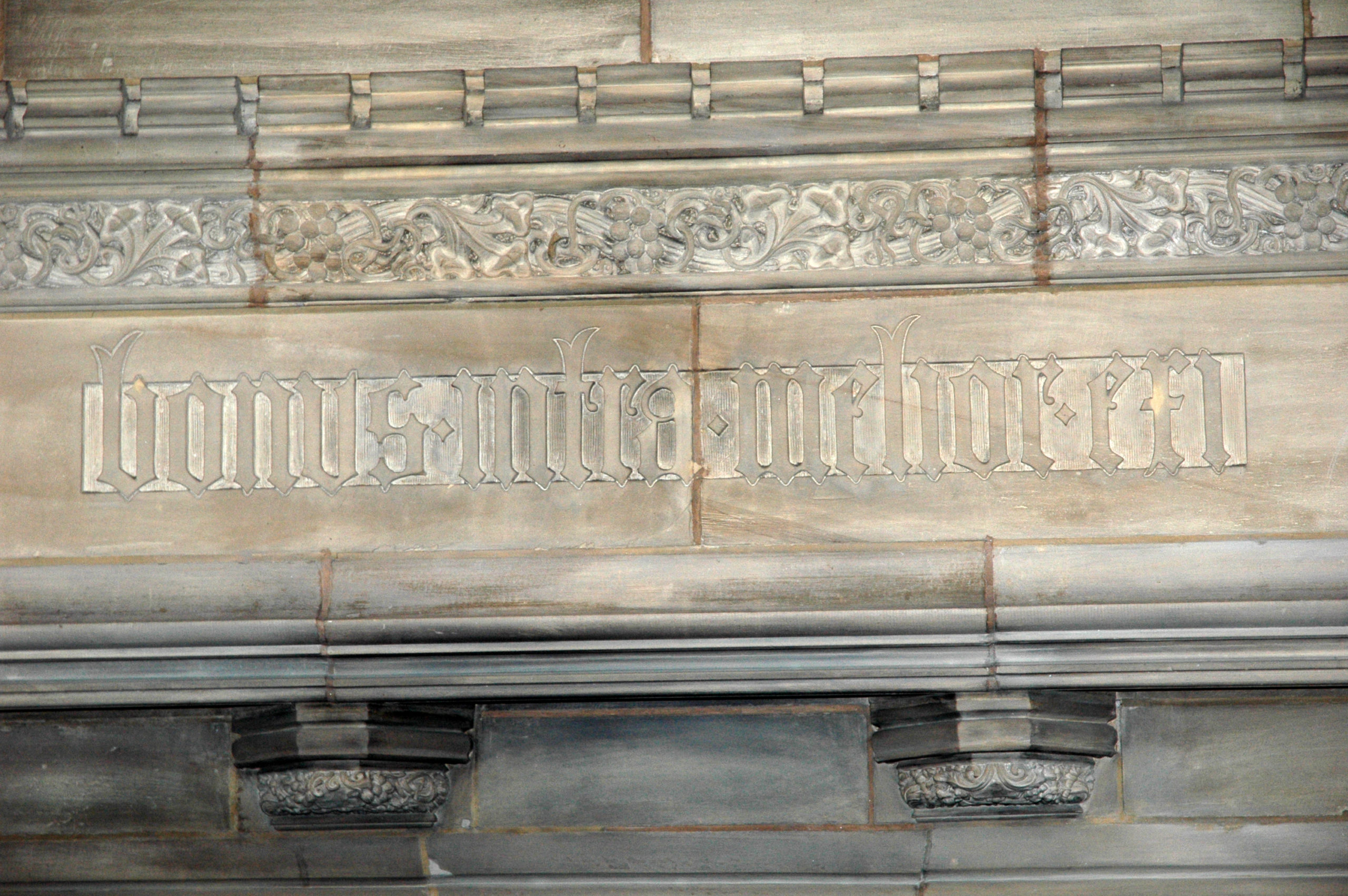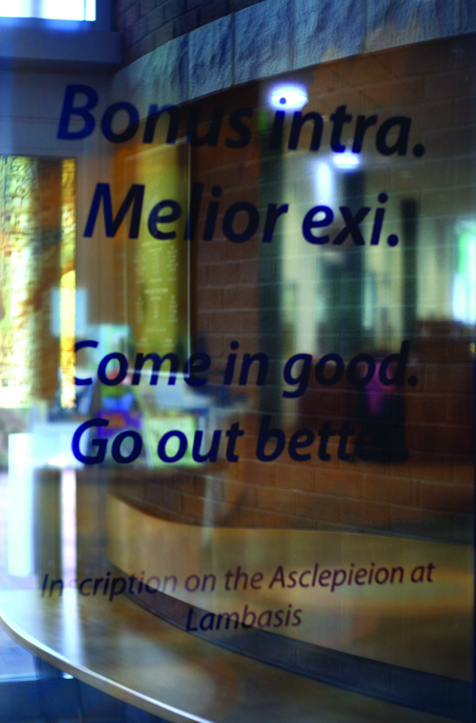Chad Alexander Smith
“Bonus intra. Melior exi.” is a Latin epigram that translates “Come in good. Go out better.” An epigram is a brief, interesting, memorable, and sometimes surprising or satirical statement. Derived from the Greek: πίγραμμα epigramma “inscription” from πιγράφειν epigraphein “to write on– inscribe”, this literary device has been employed for over two millennia. I had my first encounter with these curious words as a student at Princeton University. Each evening as I dined in Proctor Hall at the Graduate College, I passed the inscription giving it little thought.
Years later, the college published an article listing the various epigrams across campus. It was common for prior students to donate to the university and request a carving, with the many stone mantels being the popular location. Latin was the common language for an inscription. Prior to World War II, all students were required to study Latin, but following the war, the requirement was dropped. The Latin tradition is still a part of the campus experience today, as all graduating students receive a diploma written entirely in Latin.
To put our signature on our work, we like to incorporate the epigram hidden somewhere in all our designs.





